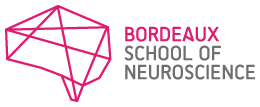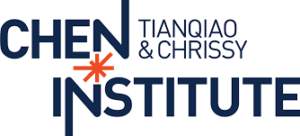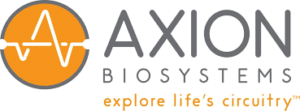Recent advancement in the stem cell field has led to the development of novel 3D cell culture models called organoids that mimic cell type diversity and architecture during organogenesis. Brain organoids, derived from human embryonic stem cells or induced pluripotent stem cells, capture key features of the developing human brain, including stem cell pool expansion, neurogenesis, gliogenesis, synaptogenesis and cytoarchitecture formation with cellular diversity and complexity. Organoids can also be derived from patient tumor samples, such as glioblastoma, for modelling brain tumors. In less than a decade, brain organoids have already been shown to be an extremely valuable tool to understand the human brain, and novel insights have been gained in deciphering evolution, human-specific features related to the brain development and neurological diseases resulted from pathogen infection, environmental insult, or genetic mutations.
In this course, we will take a multi-disciplinary approach to show what we could learn from brain organoid technology and what the future holds. The keynote speakers are all leaders in the field and will showcase the most up-to-date knowledge of brain organoids.
Course director & co-directors
- Guo-Li Ming (University of Pennsylvania, USA)
- Hongjung Song (University of Pennsylvania, USA)
- Marisa Karow (Friedrich-Alexander University of Erlangen-Nürnberg, Germany)
October 10 – 11:00am
Guoli Ming (University of Pensylvania, USA)
New iPSC based models for understanding human brain development and diseases-An intro
October 11 – 9:00am
Company Demo : 3Brain Accura
-3D Technology, modern functional imaging for next-gen neuroscience
October 11– 10:00am (Virtual Talk)
Juergen Knoblich (Austrian Academy of Science, Vienna, Austria)
Cerebral organoids: modelling human brain development and disease in stem cell derived 3D culture
October 12 – 9:00am
Agnete Kirkeby (University of Copenhagen, Denmark)
Controlling human neural subtype specification in the dish
October 12 – 11:00am
Abed Mansour (The Hebrew University of Jerusalem, Israel)
Building Brain Cellular Complexity Using Stem-Cell Based Organoid Technology
October 14 – 9:00am
Mike Karl (DZNE, Dresden, Germany)
Complex human neuropathology and cell replacement therapy models in human retinal organoids
October 14 – 11:00am
Jisoo Park (ETH Zurich, Switzerland)
Engineering neural tube organoids
October 17 – 9:00am
Sergiu Pasca (Stanford University, USA)
From stem cells to organoids to assembloids and towards buildings human circuits in living systems
October 17 – 11:00am
Alexandre Baffet (Institut Curie, Paris, France)
Investigating cell fate decisions in cerebral organoids using live imaging methods
October 17 – 5:30pm
Company Demo : Stem Cell Technologies
October 21 – 9:00am
Marisa Karow (FAU Erlangen-Nurnberg, Germany)
Harnessing the power of brain organoids for disease modeling
October 21 – 11:00am
Silvia Cappello (Max Planck Institute of Psichiatry, Germany)
Extracellular Signaling in Neurodevelopmental Disorders
October 24 – 9:00am
Gray Camp (Roche Institute for Translational Bioengineering, Switzerland)
Single-cell technologies to explore human neural organoid development and evolution
October 24 – 11:00am
Hongjun Song (University of Pensylvania, USA)
Brain tumor organoids
October 26 – 9:00am
Company Demo : Scientifica Presentation
October 26 – 10:00am
Company Demo : Axion BioSystems Presentation
Giovanna Brancati – BSSE, ETH Zürich, Basel, Switzerland
Clarisse Brunet – Institut Curie, Paris, France
Maren Büttner – DZNE, Bonn, Germany
Francesco Di Matteo – Max Planck Institute for Psychiatry, Munich, Germany
Sarah Frank – FAU Erlangen-Nürnberg, Institute of Biochemistry, Erlangen, Germany
Federica Furlanetto – FAU Erlangen-Nürnberg, Institute of Biochemistry, Erlangen, Germany
Yan Hong – Perelman School of Medicine at the University of Pennsylvania, Philadelphia, USA
Richard O’Laughlin – Perelman School of Medicine at the University of Pennsylvania, Philadelphia, USA
Laura Pellegrini – MRC Laboratory of Molecular Biology, Cambridge, UK
Fides Zenk – BSSE, ETH Zürich, Basel, Switzerland
Ting Zhao – Perelman School of Medicine at the University of Pennsylvania, Philadelphia, USA
Project 1: Generation and characterization of brain organoid of different regional identities and assembloids derived
Project 2: Microfluidic methods for patterning brain organoids
Project 3: Different approaches to perform Electrophysiological recordings in mature human cerebral organoids
Project 4: Using single cell RNA sequencing to decipher cellular heterogeneity of cerebral organoids
Project 5: Transplantation of hPSC-derived brain organoids into mouse brain
Project 6: A sneak peek into retinal organoids
Project 7: Generation and characterization of specialized organoids: cerebral and choroid plexus organoids
Project 8: Revealing neuronal activity in brain organoids using microelectrode array (MEA)
Project 9: Single cell analysis in brain organoids
Project 10: Investigate the Neurogenesis of Transplanted Forebrain Organoids In Vivo with Immunostaining
Project 11: To Fate or Not To Fate: live-cell imaging of neural progenitor cells to study cell fate decisions in the human developing neocortex

Keynote speakers
Alex Baffet – Institute Curie, Paris, France
Gray Camp – Roche Institute, Basel, Switzerland
Silvia Cappello – MPI Psychaitry, Munich, Germany
Mike Karl – CRTD, Dresden, Germany
Agnete Kirkeby – reNEW, Copenhagen, Denmark
Jürgen Knoblich – IMBA, Vienna, Austria
Jisoo Park – ETH, Zurich, Switzerland
Abed Mansour – The Hebrew University of Jerusalem, Israel
Sergiu Pasca – Wu Tsai Neurosciences Institute, Stanford, US
Lorenz Studer – Memorial Sloan-Kettering Cancer Center, US





